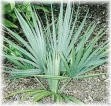Study supports safety of saw palmetto
may be unfounded, according to a new study from the US that
reported no adverse effects.
Results of the Saw palmetto for Treatment of Enlarged Prostates (STEP) study look set to be welcomed by all those with an interest in the herbal, which has been the focus of safety concerns. Indeed, the Danish food safety authorities withdrew saw palmetto products from the market pending an assessment of their safety in March 2006. "Because many men choose to take saw palmetto extracts, the potential adverse effects of this dietary supplement must be ascertained so that these individuals can make informed decisions about their use of this product," wrote lead author Andrew Avins from Northern California Kaiser Permanente in the journal Complementary Therapies in Medicine. "The STEP study provided a unique opportunity to make detailed assessments about potential toxicities of saw palmetto… Overall, we found no evidence that consumption of this saw palmetto extract, at a dose of 160 mg twice daily over a period of 1 year, was associated with any clinically important adverse effects." Saw palmetto, extracted from the berries of a dwarf palm tree, has a long history of use as a remedy for benign prostatic hyperplasia (BPH), a non-cancerous swelling in the prostate gland of older men, early in the 20th century. It was listed in the US Pharmacopoeia in the early 20th century. Benign prostatic hyperplasia (BPH) is a non-cancerous swelling in the prostate gland of older men. It affects approximately 25 per cent of American Caucasians over the age of 50, with the direct cost of BPH in 2000 calculated to be $1.1 billion (€ 0.9 billion). According to the European Association of Urology, 30 per cent of men older that 65 are affected by BPH. Study details The randomised clinical trial recruited 225 men with moderate-to-severe symptoms of BPH and assigned them to receive either a daily saw palmetto supplement (320 mg per day, Cardinal Health) or placebo for one year. Avins and co-workers report no significant differences between the groups with respect to suffering at least one serious adverse event. The data showed that 5.4 per cent of men in the saw palmetto group experienced such an event, compared to 9.7 per cent in the placebo group. No significant differences were also observed with respect to non-serious symptomatic adverse event, with 34.8 per cent of men in the saw palmetto group experiencing such an event, compared to 30.1 per cent in the placebo group. Despite such 'reassuring results', the authors note that the study only lasted for one year, and therefore long-term safety cannot be supported. Moreover, generalization to other saw palmetto extracts and products is not possible, they said, since the extract used in this study may not be representative of other extracts. "Overall, the data from the STEP trial do not support the concern of serious clinical adverse effects of this saw palmetto extract over a period of 1 year. While these results are reassuring, further data are needed to more definitively address toxicity issues and will likely emerge from ongoing investigations of saw palmetto as well as population-based toxicity studies," concluded the authors. The study was supported by the National Institute of Diabetes, Digestive, and Kidney Diseases and the National Center for Complementary and Alternative Medicine. Responsible use equals safe use The study was welcomed by Daniel Fabricant, PhD., vice president, scientific and regulatory affairs for the industry association the Natural Products Association (NPA). Talking to NutraIngredients.com, Dr. Fabricant said that he agreed with the authors that the results are reassuring. "I believe this supports the viewpoint that those with experience with botanicals have held for sometime is that when used responsibly and in amounts/concentrations supported by both clinical and folkloric literature are overwhelmingly safe. "Still clinical safety evaluation is only one line that is necessary to ensure consumer safety and we are very supportive of the diligence the industry has shown thus far in meeting the adverse event reporting requirements which are also very significant to consumer safety," added Dr. Fabricant Questions over efficacy While the new study may ease concerns over the supplement, the efficacy of saw palmetto was questioned following publication of a new double-blind randomised trial, published in the New England Journal of Medicine (Vol. 354, pp. 557-566) that reported no difference between the herbal and placebo. However, the results were described as puzzling by industry experts since they contradict the conclusions of previous studies, including a meta-analysis of 18 clinical trials (JAMA Vol. 280, pp. 1604-1609) and 21 clinical trials (Cochrane Database of Systematic Reviews 2002 Iss. 3) that reported positive results for easing the mild-to-moderate symptoms. Source: Complementary Therapies in Medicine (Elsevier) Published online ahead of print, 20 February 2008, doi:10.1016/j.ctim.2007.10.005 "A detailed safety assessment of a saw palmetto extract" Authors: A.L. Avins, S. Bent, S. Staccone, E. Badua, A. Padula, H. Goldberg, J. Neuhaus, E. Hudes, K. Shinohara, C. Kane












